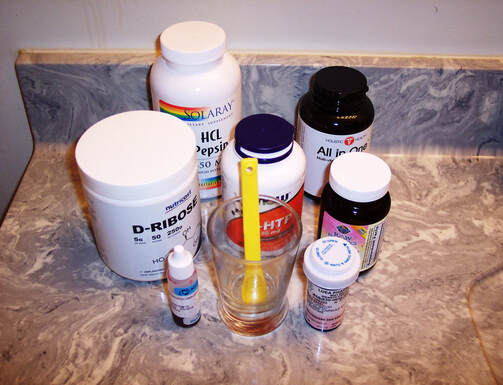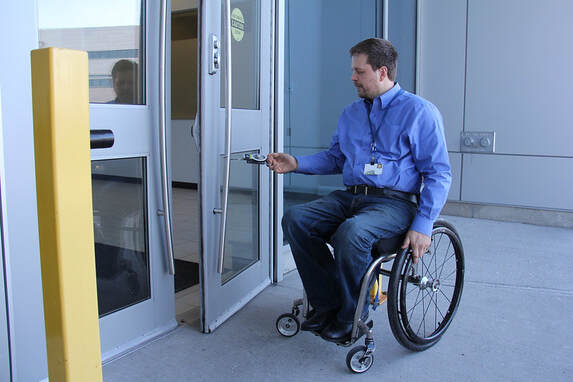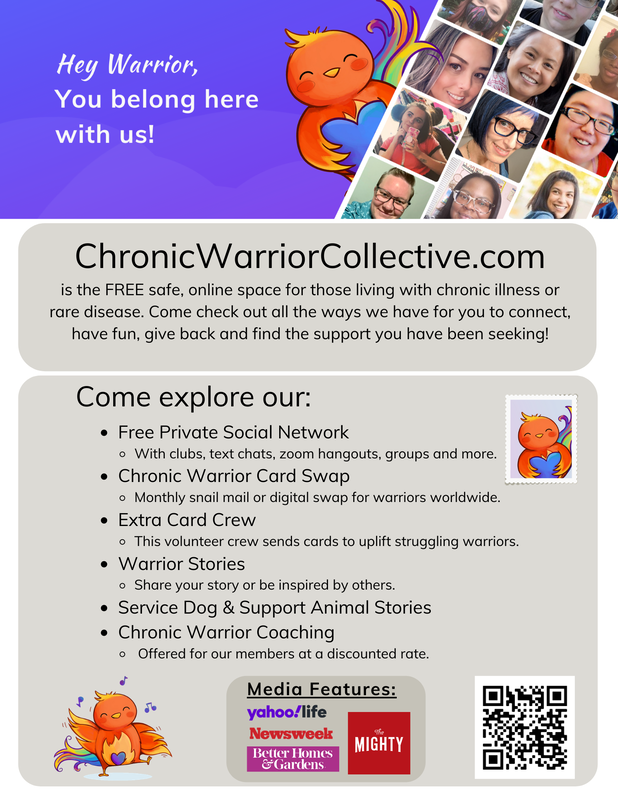|
When dealing with disease, our desperation for improvement can lead us to quack medicine, junk science, snake oil…choose your poison. It’s not a new problem, so why does it continue? According to Tim Harford in “Why Phoney Medicine Has Such Lasting Allure,” “I cannot help but draw a broader political lesson from the long history of demand for quackery. When we feel that things are not going well and that experts have been unable to help, we seek more speculative remedies, even if we do not expect much. When those remedies fail, we become more desperate, and we keep searching. There is always another charlatan around the corner.” Read the full article on quack medicine here. One quack told me my disease was in my head. Another quack (at the University of Michigan!) told me being more positive would help. A third prescribed me about a thousand dollars’ worth of supplements — I was swallowing 13 tablets a day — that did nothing, leading him to prescribe me aloe juice. Quackery is a vicious cycle. Don’t be swallowed by it or swallow everything healthcare professionals give you. Darla Nagel is a biomedical copy editor who has an invisible chronic illness. She wants to educate healthcare professionals and encourage patients. If you want to receive quarterly updates from her, email darla.nagel{a}gmail.com.
0 Comments
I’m facing the retirement of two helpful physicians and knowing their replacements will be different in their approach to my illness. I am concerned about my care, especially if I have a relapse. I am grateful for all the ways these two physicians, known in my book as Dr. Three and Dr. Special, have helped me. I wish them a blessed retirement yet wish they could remain in the field for patients like me. A patient has to be assertive with, provide a timeline of illness events and tests to, and review records from physicians. I did all three with these two doctors after negative experiences with previous physicians. The patient/provider relationship is vital. There is a crucial need for physicians with knowledge of ME/CFS care, especially in light of the increase in cases of long COVID, or post-acute sequelae of COVID. If you’re a budding health care professional who wants to know more about ME/CFS, email me! If you want additional lessons learned from chronic illness, email me so that I send them your way! Darla Nagel is a biomedical copy editor who has an invisible chronic illness. She wants to educate healthcare professionals and encourage patients. If you want to receive quarterly updates from her, email darla.nagel{a}gmail.com.
“We all carry scars...inside or out. You’re no different to the rest of us.” --Downton Abbey, Mrs. Hughes to Mr. Bates, who uses a cane Whether the disability is visible or not, we need to look at the commonalities rather than the differences between people with disabilities and people without. Darla Nagel is a biomedical copy editor who has an invisible chronic illness. She wants to educate healthcare professionals and encourage patients. If you want to receive quarterly updates from her, email darla.nagel{a}gmail.com.
Can you bake on a dairy-free diet? Can you bake on a vegan diet? Yes and yes. Baked goods will still turn out without eggs and milk with a few substitutions. Here are three recipes I’ve made a few times: cranberry orange muffins, maple granola, and unbelievably vegan brownies. Cranberry Orange Muffins (Vegan) Makes 6 jumbo muffins. Adapted from Healthy Living Market.
Fill muffin tins 3/4 full and bake 23-25 minutes, until lightly browned on top and a toothpick comes out clean. Maple Granola (Vegan) Makes 8 cups. From Cookie and Kate.
American Girl Brownies (Yes, Vegan!) Yes, they’re soft in the middle! Makes a 13 x 9 pan. Adapted from American Girl.
Heat oven to 350. Whisk dry and wet ingredients separately, and then put the dry into the wet. Mix until just combined. Fold in chips. Pour into greased pan. Bake 34-36 minutes, until toothpick comes out clean. Why do I care about vegan baking? The reasons are both for health and the environment. Darla Nagel is a biomedical copy editor who has an invisible chronic illness. She wants to educate healthcare professionals and encourage patients. If you want to receive quarterly updates from her, email darla.nagel{a}gmail.com.
Melissa Blake’s disability is visible, and so is her pride about it on social media. An Illinois resident living with a genetic bone and muscular disorder, she has made her voice heard in publications such as Psychology Today, the Chicago Tribune, and HealthyWomen as well as her blog, So About What I Said. Her core message is simple: listen to people with disabilities. Blake sees that as the way past ableism. As she wrote in HealthyWomen this year, “My hope for a brighter, less ableist future is the reason I continue to be so visible and vocal, especially on social media.” She is an honest, down-to-earth woman with a love of TV and pop music. She is a true friend to the disability community. Darla Nagel is a biomedical copy editor who has an invisible chronic illness. She wants to educate healthcare professionals and encourage patients. If you want to receive quarterly updates from her, email darla.nagel{a}gmail.com.
Since July I have been involved with the monthly Chronic Warrior Card Swap, in which people with chronic illnesses send one card to a recipient whose name and address are emailed to them. I enjoy making cards and brightening people's days, so this is a win-win for me. I always include an uplifting handwritten message in my cards. Then again, with these recipients, store-bought or printed-off cards are welcome as well. We have some understanding of the difficulties of daily life with illness. There are backup systems in place if you're not able to send a card in a given month.
This card swap is an easy way to help and meet other patients. It's not a chain letter system. I recommend joining. Get started by visiting ChronicWarriorCollective.com. I read an article that is part reflection on the cultural or philosophical purpose of illness memoirs and part review of What Doesn’t Kill You: A Life With Chronic Illness by Tessa Millerby. The article, “The Consolation of the Illness Memoir” by Anna Altman at The New Republic, caught my attention as the author of an illness memoir. Some intriguing quotes from the article:
The article’s author notes that she has chronic migraine. Even if illness memoirs so far have failed to revolutionize American health care and cultural treatment of people with chronic illnesses, I believe the books are well worth writing and reading, for the benefit of patients and those closest enough to them to truly listen. Have you written one? If so, let me know, and I'll read it! Darla Nagel is a biomedical copy editor who has an invisible chronic illness. She wants to educate healthcare professionals and encourage patients. If you want to receive quarterly updates from her, email darla.nagel{a}gmail.com.
Companies shouldn’t hesitate to hire qualified job candidates who have disabilities or chronic illnesses. These employees, overall, strive not to be burdens but instead to succeed. They are used to solving problems related to access, inclusion, and productivity, often in creative ways or with a team. See how many useful soft skills are mentioned in that sentence? Imagine the increased profits that could be realized through just one employee with these skills and work ethic. Disabled employees have plenty to offer, so offer them the job! Darla Nagel is a biomedical copy editor who has an invisible chronic illness. She wants to educate healthcare professionals and encourage patients. If you want to receive quarterly updates from her, email darla.nagel{a}gmail.com.
My first-ever blog post promoted person-first language when discussing people with disabilities, but some disabled people are advocating for identity-first language. We can embrace our disabilities as part of our identities in this way. It’s important to ask the people, when possible, the language they prefer to be used to describe them. If you’re curious about the reasons for the recent resurgence in identity-first language, here’s a summary of “Yes, You Can Call Me Disabled” by Anjali J. Forber-Platt, assistant professor at Vanderbilt University. Disability can be something to be proud of, but person-first language minimizes that point of pride. This pride could lead to positive changes for disabled people, such as improved access to resources and higher employment rates in more rewarding careers (thanks to reasonable accommodations). Forber-Platt says, “Intentional avoidance of the term disability sends the message that there’s something inherently negative or bad about having a disability. And disabled people are tired of non-disabled people telling us what they think is best for us.” Watch for further discussion of the benefits of hiring disabled employees in a future post. Darla Nagel is a biomedical copy editor who has an invisible chronic illness. She wants to educate healthcare professionals and encourage patients. If you want to receive quarterly updates from her, email darla.nagel{a}gmail.com.
Did you know there is a scholarly field called disability studies, and did you know there is a disability justice movement? Both shed light on the experiences and societal needs of people with disabilities and seek the inclusion of a historically shunned group. To learn more about disability justice, read the works of activist Tobin Siebers and check out the Twitter hashtags #ThingsDisabledPeopleKnow and #DisabledAndCute. Quote from Siebers: “Disability marks the last frontier of unquestioned inferiority because the preference for able-bodiedness makes it extremely difficult to embrace disabled people and to recognize their unnecessary and violent exclusion from society” (Tobin Siebers, quoted in Amanda Leduc, Disfigured, page 209). Read my review of Disfigured below. Darla Nagel is a biomedical copy editor who has an invisible chronic illness. She wants to educate healthcare professionals and encourage patients. If you want to receive quarterly updates from her, email darla.nagel{a}gmail.com.
|
Author:
|



 RSS Feed
RSS Feed